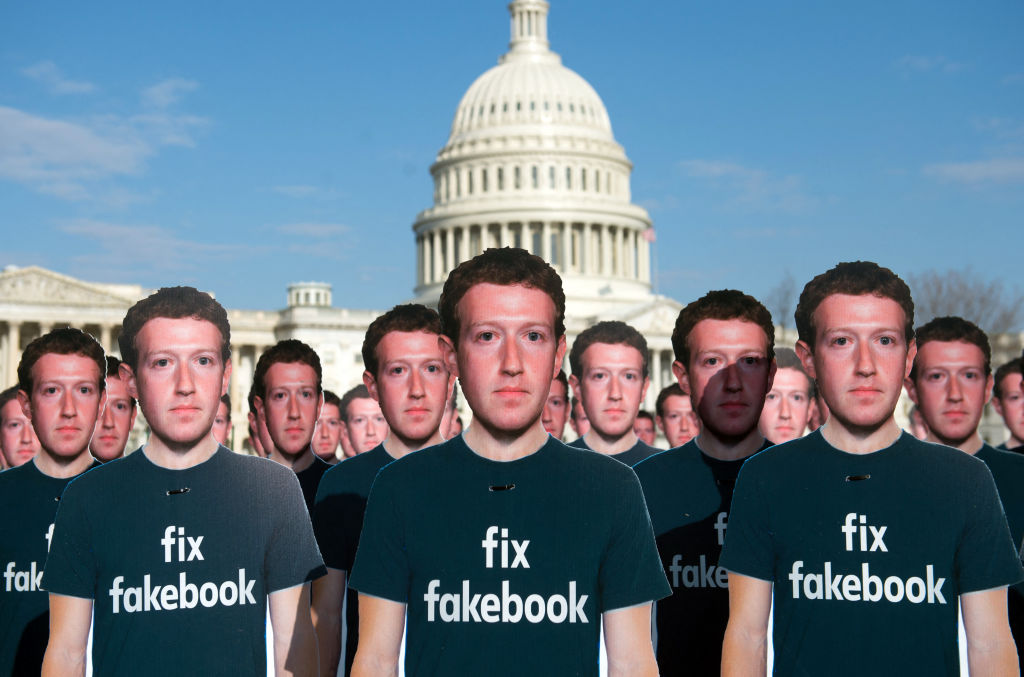In an October interview, The New York Times’s Lulu García-Navarro asked GOP vice-presidential candidate J.D. Vance whether Donald Trump had lost the 2020 election. Instead of answering, Vance replied with another question: “Is it OK that big technology companies censored the Hunter Biden laptop story?” He has used the same ju-jitsu move on several other occasions when pressed about Trump’s fraud claims, including during his debate with Tim Walz.
Vance is the respectable face of MAGA, so it seems reasonable to surmise the Trump campaign believes social-media censorship — and not rumours about late-night ballot shenanigans — offers the most broadly compelling case for delegitimising the 2020 election results. There are a few reasons for this. For one thing, while there’s no way to prove social media platforms’ handling of the Biden laptop story — which they broadly came to regret — was decisive in tipping the election, there’s also no way to prove it wasn’t. Moreover, even though most Americans disliked Trump’s post-election behaviour four years ago, they also tend to disapprove of the sort of stifling of speech his opponents attempted to undertake under the rubric of fighting “misinformation”.
For their part, Democrats including Walz, Hillary Clinton and John Kerry continue to intone against the dangers of unregulated speech online. But four years after the Biden laptop affair, they have mostly retreated from the battle against misinformation, partly because of Republican pushback, and partly because of its dubious results. Nina Jankowicz, who briefly helmed the Biden administration’s Disinformation Governance Board in 2022, said as much recently, noting that there is less “coordination between the federal government and platforms” than in 2020. The former “disinformation czar” blamed that shift on the fear that any coordination might “get brought up in congressional subpoenas and lawsuits” — such as the hearings on online censorship led by Rep. Jim Jordan and the 2023 Supreme Court case Murthy v. Missouri. Statements from those running the platforms also suggest an increased discomfort with earlier actions in this area, as when Meta CEO Mark Zuckerberg recently expressed regret for acceding to government pressure to censor.
And so we aren’t likely to see a replay of the coordinated effort between government agencies, NGOs such as the Election Integrity Partnership, and private tech companies to flag, suppress, and remove posts determined to be “misinformation”. For those of us who found that entire project troublingly at odds with the First Amendment, its retreat should be a welcome development.
However, it is also unclear whether the effects of these activities ever corresponded either to their architects’ aims — or to the Orwellian nightmares its opponents conjured up in response. Consider the case raised repeatedly by Vance as Exhibit A of the censorship apparatus: the New York Post’s reporting on Hunter Biden’s laptop. The story was blocked on Twitter for two days, after which the company reversed course, with then-CEO Jack Dorsey apologising; Facebook didn’t block it, but algorithmically suppressed it before likewise changing course.
This incident lays bare some unfortunate tendencies, but it doesn’t illustrate the smooth functioning of a well-oiled, top-down “censorship machine”, as has been alleged by some on the Right. Instead, what we see is a clumsy, poorly-thought-out effort that ultimately came to embarrass those behind it. While the online censorship was still in effect, the Biden laptop story was nonetheless being widely discussed, including in the halls of Congress; it is conceivable that it even received more attention than it would have — an instance of the Streisand effect — due to the outrage provoked by the tech companies’ egregious actions.
The ultimate fallout, then, wasn’t a successful stifling of speech, but embarrassment for the establishment, which had attempted and failed to suppress a politically damaging story. So it also went for the ill-fated Disinformation Governance Board, which was disbanded after just three months under fire not just from Republicans but also from progressives and civil libertarians.
Regardless of who prevails, we can hope both parties learn the right lessons from the attempts at online censorship that proliferated around the last election, and are now in abeyance. Such efforts are at odds with most Americans’ deep-seated belief in free speech as well as being fundamentally anti-democratic, since they assume experts can dictate truth and untruth from on high. While we should be encouraged by the failure of these efforts, it is also both ironic and regrettable that their main effect has been to compound public distrust in institutions.











Join the discussion
Join like minded readers that support our journalism by becoming a paid subscriber
To join the discussion in the comments, become a paid subscriber.
Join like minded readers that support our journalism, read unlimited articles and enjoy other subscriber-only benefits.
Subscribe